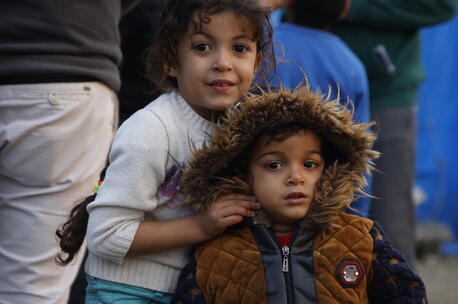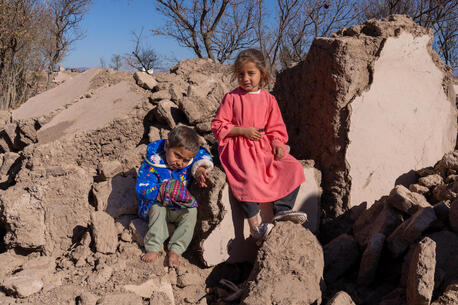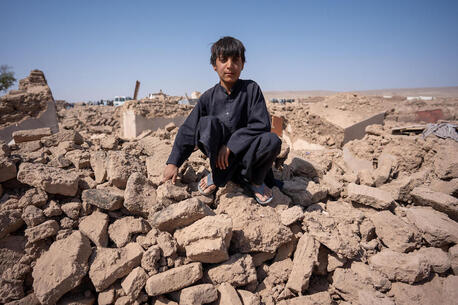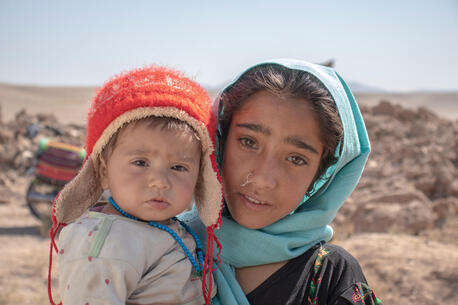
Emergency Response for Children After Afghanistan Earthquakes
UNICEF and partners are reaching children and families with urgently needed humanitarian assistance following a series of deadly quakes and aftershocks in western Afghanistan.
The first rumblings sounded like a rocket or a bomb, recalled shaken survivors of the magnitude-6.3 earthquake that hit Afghanistan's Herat Province on Oct. 7. Mothers hurried their children inside for safety, not knowing their houses were about to collapse.
Men out working in the fields rushed home, only to find family members buried in the rubble. Over 90 percent of the dead are women and children.
Since Oct. 7, the area has been hit with a series of aftershocks, a powerful quake on the morning of Oct. 11, and yet another on Oct. 15. Families are sleeping outside in tents near the ruins of their homes, away from any remaining buildings that could collapse at a moment's notice.
Most have lost at least one family member. In some families, there are no survivors.
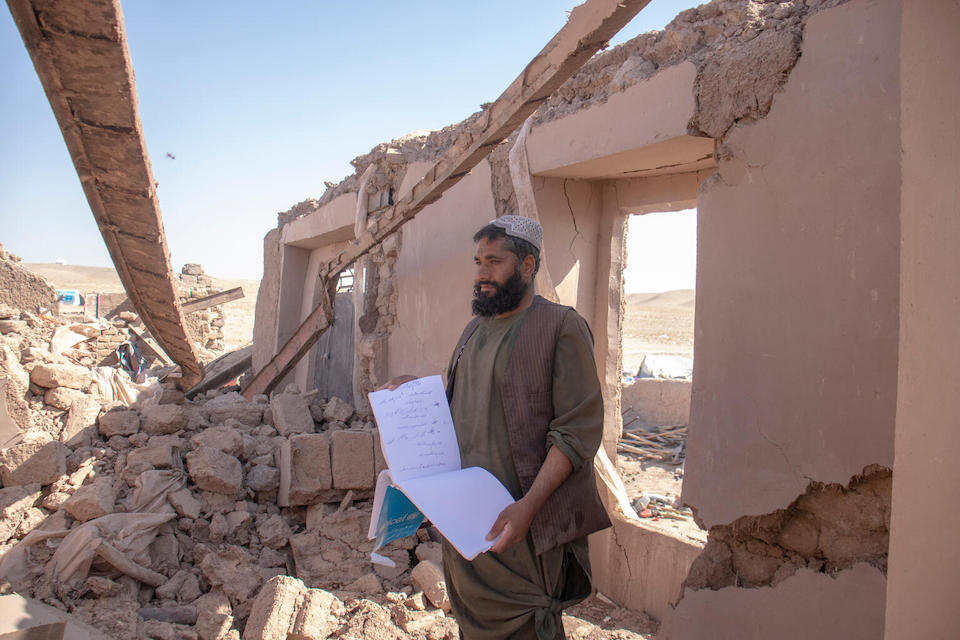
UNICEF is providing humanitarian assistance to Afghan families who lost everything in the quakes
UNICEF teams have been on the ground responding to the earthquakes since Day One, working with NGO partners to deliver emergency assistance to children and families as they begin to rebuild their lives and recover from the trauma they've experienced.
Within 24 hours, UNICEF staff had begun distribution of emergency supplies to families in crisis, including 1,000 tarpaulins, 850 blankets, 1,500 sets of winter clothes, 5,000 family kits containing cooking utensils and other household goods, and 10,000 family hygiene kits filled with soap, toothbrush and toothpaste, menstrual supplies and other essentials. Twelve hundred cartons of Ready-to-Use Therapeutic Food (RUTF), used to treat children suffering from severe acute malnutrition, have been delivered to partners in earthquake-affected areas; another 3,640 cartons are pre-positioned. Delivery of supplies is ongoing.
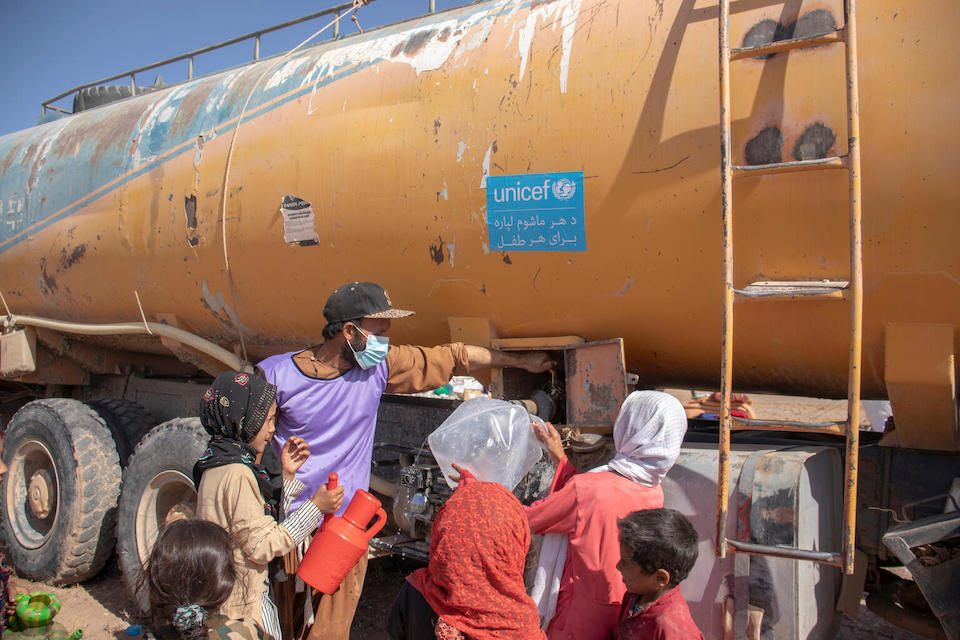
Temporary health clinics, safe water, urgent medical care
Ten high-performance tents have been set up to serve as temporary health clinics. Ten ambulances shuttle the injured to Herat Regional Hospital around the clock. More than 100 health workers — both men and women — have been mobilized to provide urgent medical care to those affected by the quake.
By Oct. 11, more than 9,400 people in 11 villages in Zinda Jan district, the quake's epicenter, had received safe, drinkable water from UNICEF emergency water trucks. As of Oct. 15, the number of people reached with safe water had swelled to 52,117. Access to safe water is essential to prevent possible disease outbreaks; without working sanitation facilities, open defecation is common. Three sanitation facilities are in need of reconstruction and 175 new latrines must be built in earthquake-impacted areas.
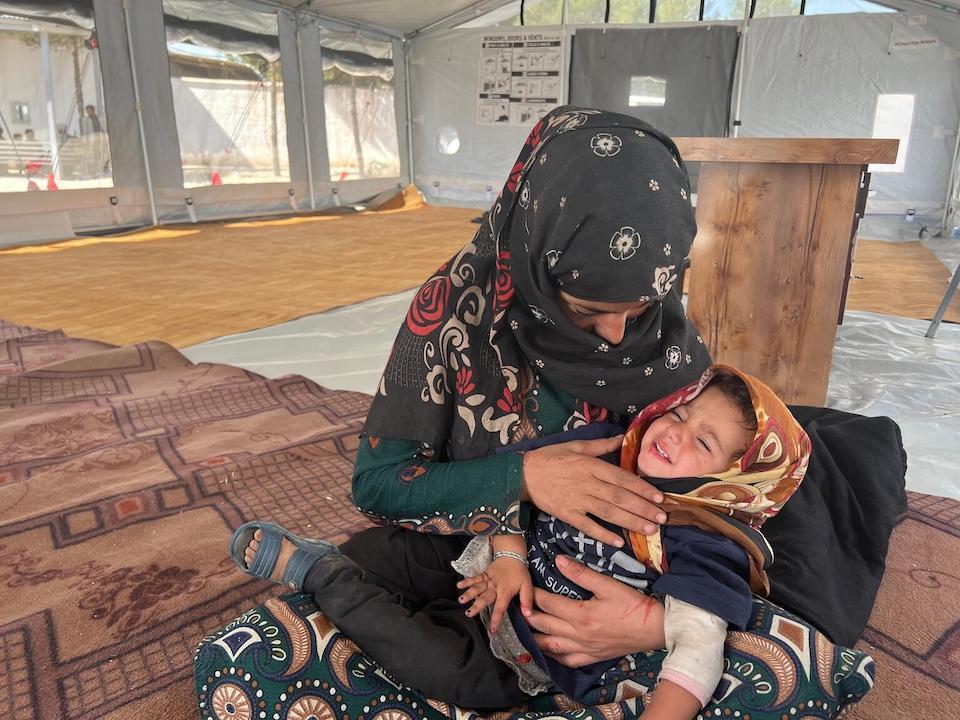
Places where kids can play, reunification of separated children with their families
UNICEF teams — who fear for the safety of their own families with every quake and aftershock — continue to assess the needs of children and families in remote villages. Caseworkers have begun family tracing for children who have become separated from their parents. Counselors are providing group and individual psychosocial support for the displaced in temporary shelters and transit centers. Female social mobilizers, who are able to meet directly with women and children in a way that male health workers are not, are sharing vital health and hygiene safety messages.
UNICEF staff are also setting up Child-Friendly Spaces to give children a place to play and feel safe, and preparing to establish emergency education classes so children can get back to learning, and regain a sense of normalcy.
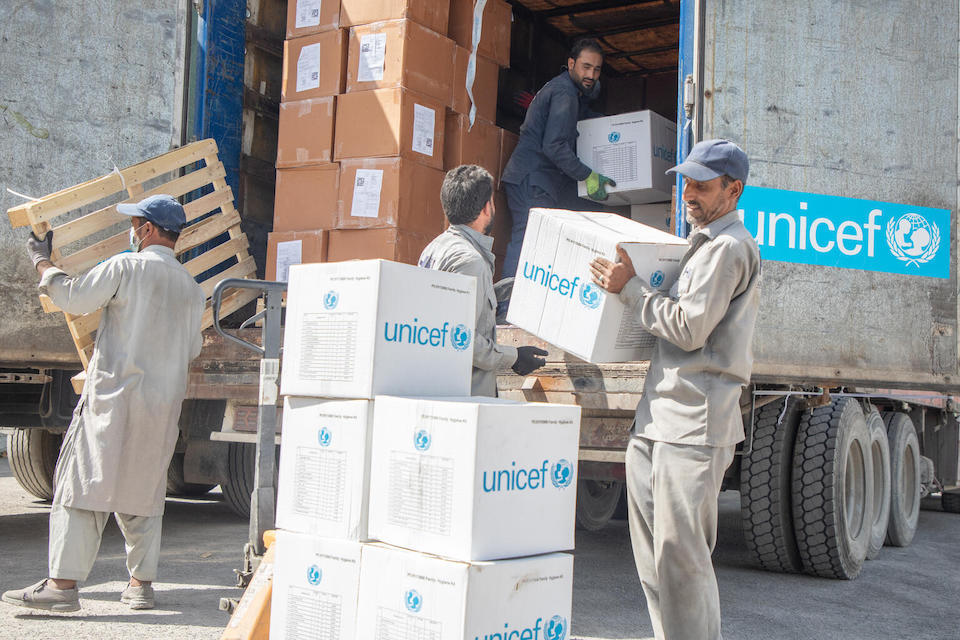
Children in Afghanistan were already in urgent need of support — now winter is coming
Even before the recent quakes, children growing up in Afghanistan were faced with political instability, conflict, economic crisis, drought, flooding and displacement. Three-quarters of the country's population was already in need of humanitarian support.
Now, with a harsh winter approaching and the threat of continued aftershocks still a reality, Afghanistan's children need help more than ever. To give families flexibility and dignity to meet their most urgent needs — warm clothes, healthy food, health care expenses — UNICEF plans to deliver a one-time payment of $170 in cash assistance to over 2,500 families.
“As always, UNICEF stands in solidarity with the people of Afghanistan during this difficult time,” said Fran Equiza, UNICEF Representative in Afghanistan.
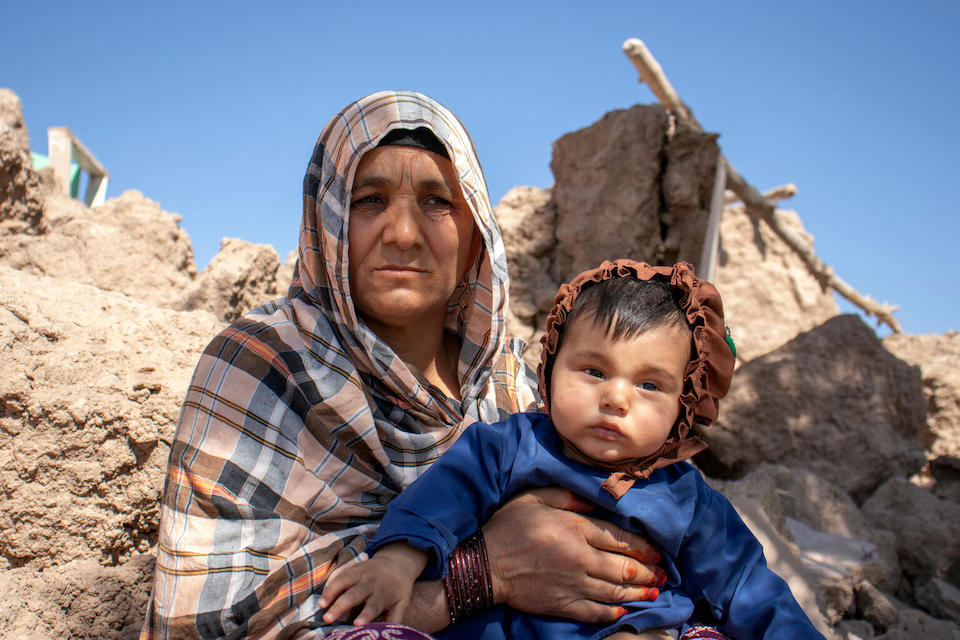
Wherever and whenever children are in need, UNICEF is there to help. Your contribution can make a difference. Please donate.
